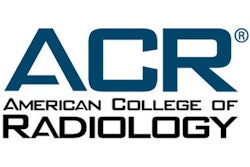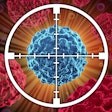Dear CT Insider,
CT lung cancer screening programs are becoming more prevalent around the world, and almost in parallel with screening's growth is a rising number of questions regarding its effectiveness.
One growing concern is the overdiagnosis of lung cancer on screening exams and the potentially negative effect it may have on patient outcomes. How common is overdiagnosis, and how should clinicians address it? Researchers from Denmark and Portugal delve into these and similar questions in this edition's Insider Exclusive.
Various groups have recently sought to address other questions and topics related to CT lung cancer screening as well, including the following:
- Are physicians adequately informing patients about the potential harms and benefits of lung cancer screening? Investigators from the University of North Carolina provided a behind-the-scenes look at real patient-physician conversations during their shared decision-making consultations.
- Do individuals of different races benefit equally from lung cancer screening? Probably not, according to a team from the University of Illinois at Chicago that conducted an inner-city, minority-based CT screening program.
- How many rounds of negative CT screening exams are enough to rule out lung cancer in the long term? A group from Canada tackled this query in a Radiology publication.
- What motivates people to seek out CT screening? Washington-based researchers presented four key reasons they uncovered in a recent study.
Developments in CT protocols may also help improve lung cancer screening. Clinicians from the Mayo Clinic in Rochester, MN, used computer-aided detection to identify lung nodules with a much lower radiation dose than standard CT. Find out just how well this ultralow-dose CT protocol performed by clicking here.
In one of the first published studies covering a new ultrahigh-resolution CT scanner, researchers from Osaka University in Japan reported that the device significantly enhanced image quality compared with standard CT without altering radiation dose. Get an in-depth look by clicking here.
Finally, Dr. Ronald Summers, PhD, and colleagues from the U.S. National Institutes of Health last month released a massive database of CT scans to support the development and testing of artificial intelligence algorithms. Get access to this DeepLesion database and learn about the prototype universal lesion detector that the group developed by clicking here.
From reducing variation in CT protocols to minimizing the need for CT scans to detect traumatic brain injuries, discover what other measures researchers from around the world have been taking to improve the use of CT in healthcare by heading over to AuntMinnie.com.
Feel free to reach out with any relevant news or suggestions for topics you'd like to see covered in our CT Community.




















